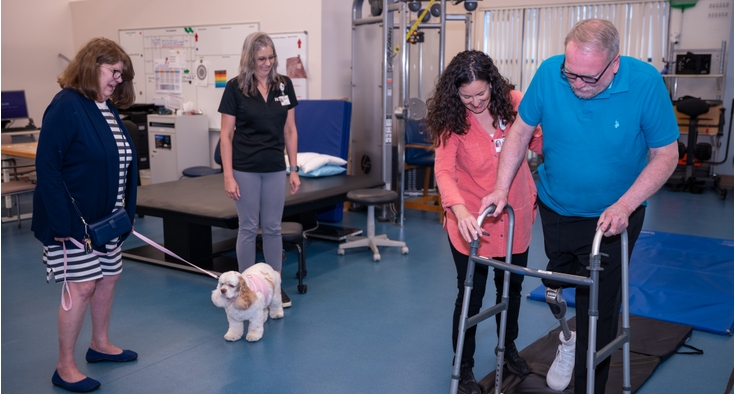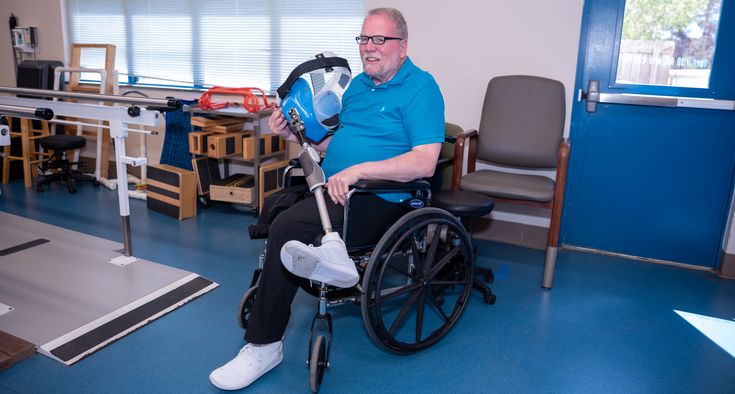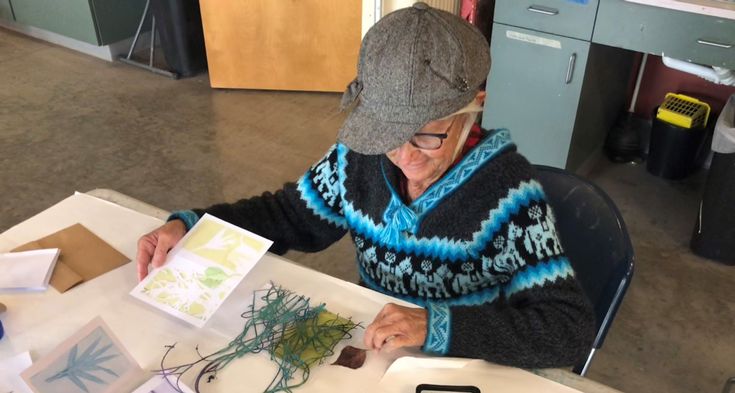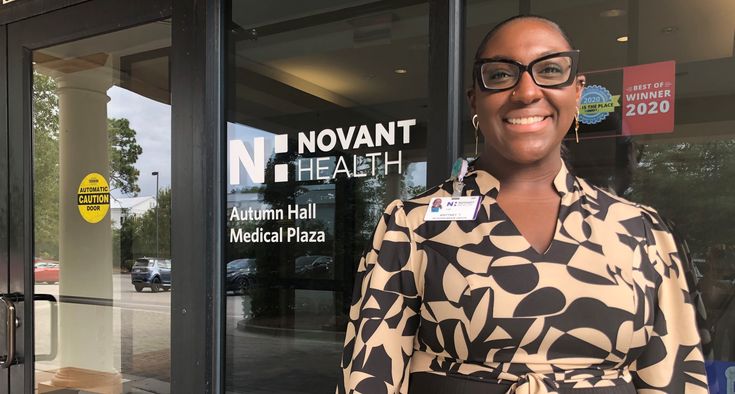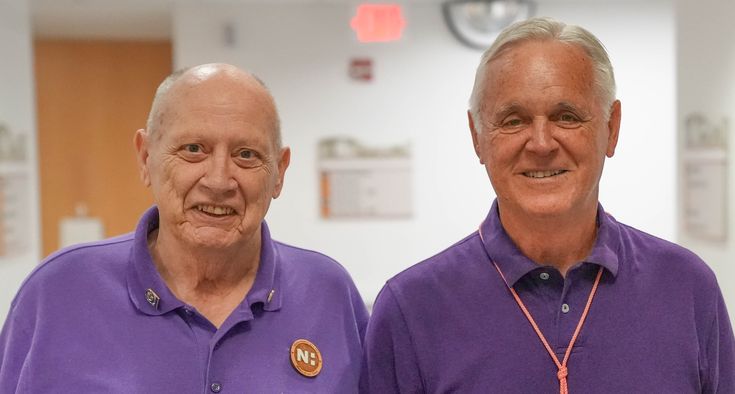Anyone who knows Reverend Dr. Floyd A. Hall also knows Joie, his wife of more than half a century, and his trusty service dog, Meggie, an 8-year-old cocker Spaniel they’ve had since she was a puppy. They’re his constant companions, and the trio, living in Sneads Ferry, North Carolina, has navigated some intense medical challenges together.
Hall, a 71-year-old retired United Methodist minister, became an amputee in December 2022 after complications from a sarcoma – a rare and aggressive form of cancer – damaged his right leg. Hall is also legally blind. But despite his lack of eyesight, he continues to see the world much more clearly than many, with absolute love, positivity and enthusiasm. He lives by his motto, Psalm 27:13: “I will see the goodness of the Lord in the land of the living.”
How does Hall remain optimistic even during challenging times? Here he shares what keeps him positive and loving life to the fullest even when faced with tough medical diagnoses.
Take control of your emotional wellbeing.
1. Music and song.
The night before Hall’s amputation, he was in an uncharacteristically dark place. What lifted him up was singing his favorite hymns, “It is Well With my Soul,” “Great is Thy Faithfulness” and others.
For the past two years, Hall has attended physical therapy twice a week at Novant Health’s Rehabilitation Center on Oleander Drive in Wilmington, (you can read his whole story about this here), to progress from a wheelchair to walking with a prosthetic leg. It’s required a huge physical and mental commitment. Debbie Knudsen, supervisor at the rehabilitation center, noticed that during his physical therapy sessions – when Hall’s working his hardest – he’s usually singing.
“When Floyd comes in, we’ll ask how he’s doing. And he’ll break into James Brown’s ‘I Feel Good,’” Knudsen said. “He’s had so much to deal with – he’s been to hell and back – but he’s always a positive spirit.”
Having a sense of humor has also helped. When Hall received his first prosthetic leg, Joie filmed a video of him walking down a hallway in a tuxedo jacket while singing his own lyrics, “New Leg, New Leg,” to the tune of “New York, New York.”
2. Giving himself grace.
Patients need more than two physical therapy sessions a week. So Amber Ponnett, Hall’s physical therapist, gives homework. Even before Hall was fitted for his prosthetic leg, Ponnett sent him home with assignments. On the next visit, she’d usually compliment his progress.
But keeping up can be hard. At home, Joie needs another spotter. A neighbor and dear friend often comes to assist.
Ponnett tells Hall to forgive himself if he falls behind. “Sometimes, people need to just live their lives,” she said. “They may not always get to their homework. And that’s OK.”
Hall is grateful that Ponnett, whom he calls “Sarge,” pushes him. “I tease Amber because, no matter what the exercise was, she’d say, ‘Floyd, you’re doing good. Now, give me 10 more,’” he said. “If she doesn't like what you’re doing, she doesn't get stern. She’ll gently correct. She’ll say, ‘That’s good, but let's try it this way.’ She’s never harsh, but very, very patient.”
When Hall has a down day, Ponnett reminds him how far he’s come. “She’s great about adjusting the mental attitude,” he said.
3. Above all else, faith.
Hall and Joie share a strong faith. They’re grateful for their “nationwide prayer chain” that’s been lifting them up. Faith is what gets them both through each day and what keeps them hopeful. (Floyd published a memoir, “The Goodness of God,” about the role faith has played in his healing.)
“I trusted God to carry me through,” he said, “and I found so many people who – with their care, compassion, kindness and understanding – have sustained my faith. They made it impossible for me to be angry. God has introduced me to so many wonderful people. How can I feel anything but blessed?”
Take care of the caregivers
Joie and Floyd Hall make a formidable team. She’s his full-time caregiver, his advocate, his cheerleader, and she’s been essential to his recovery.
“Joie is always there to help Floyd, but she helps me, too,” Ponnett said. “She learned so much about Floyd’s prosthesis. Without her, none of us would’ve come this far.”
Like her husband, Joie exudes optimism. They both see their glass as more than half full. She cherishes the vital part she plays in Floyd’s healing, saying, “I wouldn't give up my role for anything.”
But she added, “It’s tough.”
“Being a caregiver can be lonely and overwhelming,” she said. “It’s a position you’re not prepared for; it’s thrust upon you. There’s not much support out there for caregivers. I’m here 24/7 by myself.”
It’s a position many find themselves in. “Nearly 90 million Americans provide care for a loved one with a chronic condition, disability or the frailties of old age,” according to the Caregiver Action Network.
If you know someone serving as caregiver for their spouse or any family member, Joie said there’s an important role you can play. “It sure is encouraging when a friend picks up the phone to call you, or a neighbor stops in just to say hi,” she said. “Caregivers are grateful for any type of support.”





